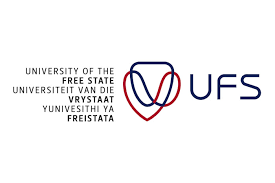SA Sweden grant to University of the Free State expands opportunities
Prof Corinna Walsh, Professor in the Department of Nutrition and Dietetics at the University of the Free State (UFS), and her collaborators have been awarded the South Africa – Sweden University Forum (SASUF) Virtual Exchange Grant, which commenced at the beginning of 2023.
Prof Walsh is also the first academic at the UFS to receive this grant, which will allow her to embark on a virtual exchange programme in nutrition and public health education.
SASUF, a project to strengthen collaboration in research and education between South Africa and Sweden, was launched in 2017, and to date has connected more than 3 000 Swedish and South African researchers and students in workshops and seminars.
According to Chevon Slambee, the local coordinator for SASUF in the UFS Office for International Affairs, the SASUF initiative is one of the tools to expand the physical classroom into an interconnected virtual classroom. This strongly aligns with the aims to internationalise the curriculum, which has been mandatory for institutions of higher education since 2020, according to the National Policy Framework for the Internationalisation of Higher Education in South Africa.
SASUF virtual exchange grant
This grant was awarded to Prof Walsh and her collaborators five years after she started her SASUF journey when she crossed paths with Prof Ilona Grünberger, Professor in Public Health Sciences at Stockholm University, Sweden, and Prof Anneli Ivarsson, Professor and Consultant in Paediatrics in the Department of Epidemiology and Global Health at Umeå University, Sweden.
Profs Grünberger and Walsh discovered shared research and teaching interests and decided to apply for a SASUF collaborative research grant, which they received in late 2019. They participated in several SASUF workshops and collaborated on a teaching project, where Prof Walsh delivered guest lectures and interacted with students during seminars and online discussions in the master’s programme in Public Health at Stockholm University. One of her lectures focused on improving nutrition and health outcomes in the first 1 000 days of life.
Last year (2022), Prof Walsh presented at a SASUF Goes Digital workshop while visiting Sweden, discussing a life course approach to children’s health, development, and well-being. Besides networking and exploring potential research collaborations, she also used this opportunity to attend presentations and discussions on women’s health, adolescent mental health, and healthy ageing at Stockholm University and the Karolinska Institute.
In the same year (2022), she submitted a joint application for SASUF Virtual Exchange during the new round of SASUF grants. Her submission, titled Public health nutrition in the context of global public health: Capacity development for health education and public health through virtual exchange between Sweden and South Africa, was one of 13 projects successfully selected from the 50 applications received.
According to Prof Walsh, maternal and child health are an important research focus in both South Africa and Sweden. “Shared studies present the opportunity to build capacity to provide evidence for understanding the developmental origins of health and disease in these very different contexts,” she says.
Prof Walsh explains that they have expanded their group for this virtual exchange collaboration to include Dr Zakir Hossin, a postdoctoral researcher from the Division of Clinical Epidemiology at the Karolinska Institute, Prof Zandile Mchiza from the SA Medical Research Council (MRC) and School of Public Health at the University of the Western Cape, and Dr Whadi-ah Parker from the Human Sciences Research Council (HSRC).
The group’s first activity was hosting a workshop titled, Life course epidemiology: Methodological issues in life course research for global public health during the in-person SASUF Sustainability Forum at the University of the Western Cape in March.
She says the funding, networking, and collaboration benefits of the SASUF programme are what motivated their group to apply for the grant this time around.
“Through this programme, we can also further develop meaningful, virtual intercultural interactions between students, teachers, researchers and other stakeholders, including the South African Medical Research Council (MRC) and the Human Sciences Research Council (HSRC),” she states, indicating that the project will see undergraduate, master’s, and doctoral students, as well as postdoctoral fellows, participate in the virtual exchange activities.
“Teaching and learning activities will facilitate students’ involvement in cross-cultural teamwork, understanding and problem-solving, sharing of experiences and co-creation of knowledge,” says Prof Walsh, who is of the opinion that virtual exchange programmes provide students with an exciting platform to expand their worldview.
This process will also involve the exchange and co-creation of teaching materials by Swedish and South African teams; online interactions of student groups during online and hybrid courses in public health and nutrition; co-supervision of dissertations at an advanced level and mentoring of doctoral students by senior researchers and postdoctoral fellows from collaborating countries; as well as the active involvement of doctoral students and postdoctoral fellows in international collaborative teaching activities.
Future expectations
“Developing our students in the areas of public health, global public health and public health ethics, and public health nutrition, has the potential to benefit both the students and the communities in which they work,” says Prof Walsh.
Furthermore, the SASUF Virtual Exchange Programme also addresses all the key principles as outlined in the UFS’ Vision 130, namely excellence, impact and innovation in putting the needs of others first, delivering significant work, and constantly changing to remain relevant in the highly competitive international higher education market.

